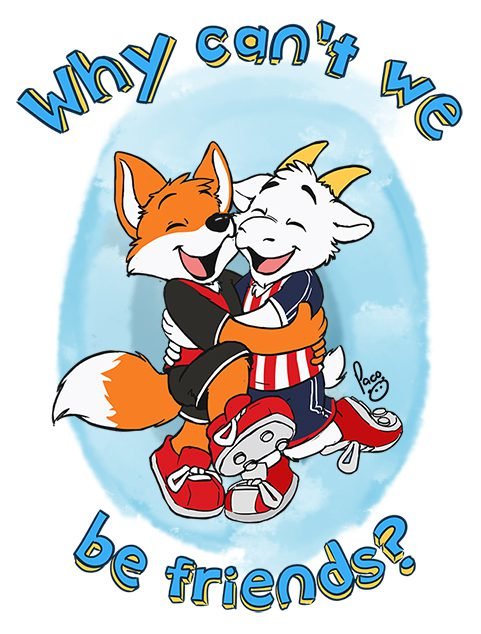
I have written numerous times about how Evangelicals use fake friendships to evangelize non-Christians:
- Beware of Evangelicals Coming in the Name of “Friendship”
- Nice-to-Your-Face-Christians
- Just Remember, Evangelicals Always Have an Agenda
- Bruce, I Want to be Your Friend — Part One
- Bruce, I Want to be Your Friend — Part Two
- Beware of Evangelicals Who Come Bearing Offers of “Free Coffee”
- How to Turn Your Evangelical Teens into Annoying Fake Friends
My Evangelical critics might argue that I have it out for Evangelicals; that I can’t see the “good” Evangelicals do; that Evangelicals sincerely care about people. Believe what you will, but one thing I know for sure: Evangelical zealots are notorious for using disingenuous methods and subterfuge to achieve their God-ordained goal: winning lost souls to Jesus. No other group of Christians — Mormons and Jehovah’s Witnesses excepted — is willing to use fake friendships to achieve a religious objective. I am friends with several mainline Christian pastors. Not one time have these men and women attempted to evangelize me. We are friends for friendship’s sake.
I am convinced that Evangelicals have a pathological need to make other people to be just like them; to seek, force, and demand conformity to their peculiar religious beliefs. Evangelical zealots see every non-Christian as an evangelization target, a prospect for Heaven, a prospective (tithing) church member. The goal remains what it has always been: to recruit new club members.
Lest readers think that I have developed this opinion post-Jesus, people who were following me back in 2007 know that I was quite vocal about Evangelicals and their nefarious evangelism methods. Readers from that time likely remember my interaction with an emergent church pastor named Iggy. Iggy was bragging about what he and his church were doing for the local community. If I remember right, they were handing out free flower pots to people. I asked if the pots had the church’s name on them and if locals were given church advertising brochures along with the pots. After Iggy admitted that yes, the pots had the church’s name on them, and yes, people were given church advertising brochures, he attempted to defend his actions by saying they were genuinely trying to make friends with people in their community.
Then, as now, I objected to what I considered less-the-honest methods to evangelize people; that the goal wasn’t friendship, but saving the lost and gaining new church members. This led to Iggy and me having an epic war of words, one in which I had a profanity-laced meltdown (for which I later apologized).
I share this story to emphasize the fact that I objected to Evangelicals using fake friendships to evangelize then, and I still object today. Whether I was a Christian or an atheist, it matters not. I despise people who attempt to befriend others for ulterior reasons. All I ask is that Evangelicals be upfront about why they are doing what they are doing. In other words, stop the Trojan horse evangelism practices. Have the “soldiers” get out of the wooden horse and declare themselves: we are here to ravage you in the name of the one true Lord and King, Jesus.
This brings me to the a Gospel Coalition post about yet another way to evangelize non-Christians. Written by Erin Wheeler, wife of Brad Wheeler, the pastor of University Baptist Church in Fayetteville, Arkansas.
Wheeler writes:
“I like your ink,” I say casually as I walk past the woman in my exercise class. “Thanks,” she mumbles, eyeing me with that look.
It’s the look people give when someone notices their tattoo. They wonder if the person really means the compliment, or if they just happened to notice their purposely and permanently pigmented skin.
At the gym, our conversation continues for a bit. She tells me her tattoo reminds her of a family member she lost a few years ago. I tell her I got my tattoo to remember how God saved my marriage at a time when I thought we might not make it. I have interactions like these frequently: at the gym, at the coffee shop, at the community pool. As a Christian, I’m hoping these tattoo conversations might lead to a more important conversation. A conversation about the gospel.
As we go through our days, looking to speak to others about Christ, maybe it’s time we considered how asking about someone’s tattoo could be intentionally evangelistic
….
Tattoos present a marvelous gospel opportunity for us. As my coworker, a former tattoo artist, said, “99 percent of people get a tattoo for a reason. There’s a story behind the artwork.” And that, my Christian friend, is an open door! Why not walk through it?
….
Why not ask the barista you order coffee from each morning (whose name I hope you know by now), “Hey Sam, I’ve noticed that tattoo on your arm and have been thinking about it. What is it exactly?” Depending on how he responds, follow up with, “What made you decide on that design?”
Or how about a coworker or neighbor you’ve gotten to know a bit? Why not take the risk of possibly sounding nosy or weirdly curious: “Hey Laura, I’ve seen those words on your wrist. What made you choose those? I’m curious.” And then shut your mouth and listen. There’s a story behind that tattoo.
Even if they don’t share their story with you right then and there, it might be the thing God uses to open a door and give you an opportunity to share the good news of Jesus Christ. It’s amazing what you can learn about somebody with that simple prompt.
In response to my questions, I’ve heard people’s whole life stories. I’ve had a man tell me about his tattoo in memoriam for the infant daughter he tragically lost. Others have shared their love of nature—or “Mother Earth” as they called it. I even had a fellow nurse explain her love for Dr. Who because of how he cared for others, particularly the innocent. According to her, that’s what led her into nursing. Even if someone doesn’t remember getting their tattoo, that drunken night or wild weekend is part of their story.
We can respond to each of these stories with gospel truth. Jesus, the ultimate caregiver, has made a way for the dead to come to life through his own death and resurrection. He knows what suffering is like. He can identify with the broken. He’s the Creator and Sustainer of this amazing world. All we see, he has made. He’s the master storyteller, and he’s at the center of it all.
Why not use a tattoo story as a bridge to invite others to become a part of God’s larger story?
Do you have tattoos? If you do, remember this post the next time an Evangelical strikes up a conversation with you about your body art. Evangelical zealots want to evangelize you so they can put another notch on the proverbial handle of their gospel six-shooter. Yet another sinner slain for Jesus, Brother Billy Bob says to himself. Perhaps unbelievers need to get tattoos that say “Fuck Off” or “No, I am Not Interested in What You Are Selling” or Born-Again Atheist.” Or maybe just wear garlic around your neck to ward off the Evangelical vampires who want to drain the life out of you.
Bruce Gerencser, 68, lives in rural Northwest Ohio with his wife of 47 years. He and his wife have six grown children and sixteen grandchildren. Bruce pastored Evangelical churches for twenty-five years in Ohio, Texas, and Michigan. Bruce left the ministry in 2005, and in 2008 he left Christianity. Bruce is now a humanist and an atheist.
Your comments are welcome and appreciated. All first-time comments are moderated. Please read the commenting rules before commenting.
You can email Bruce via the Contact Form.

